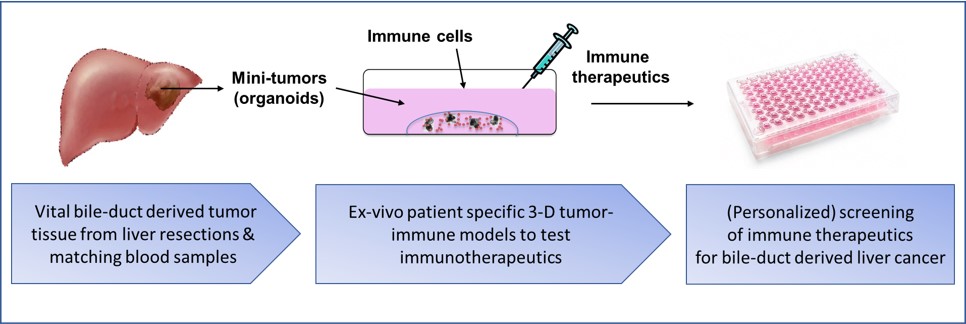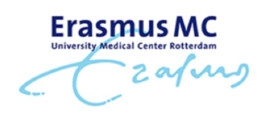Cultures of mini-liver tumors with immune cells to test immunotherapies
Erasmus MC-University Medical Centre (Rotterdam) and Merus NV, a clinical-stage biotechnological company in Utrecht have developed a novel technique to culture three-dimensional mini-tumors, that are grown from surgically resected human liver tumors derived from bile duct cells (cholangiocarcinoma; CCA) with immune cells from the same patient. Merus NV is a company focused on the development of Biclonics® antibodies to treat cancer. Merus NV has developed full length, IgG bispecific immune checkpoint antibody candidates (Biclonics®) that have the potential to be more effective compared to conventional mono-specific antibodies potentially mitigating immune-related toxicity.
Because liver-cancer derived from bile-ducts is not as prevalent as the more common liver cell derived form (hepatocellular carcinoma; HCC) much less is known about the effectiveness of immunotherapeutic drugs. Furthermore, the poor prognosis/survival of patients makes clinical research very challenging. Thus created co-culture system represent a great opportunity to now assess drug candidates in a relevant system and without animal models.
At Erasmus MC mini-tumor-immune co-cultures were derived from bile-duct derived liver tumor which were then co-cultured with immune cells derived from the same patient to mimic the intro-tumor micro-environment. In this environment immune suppressive mechanisms are at play that counteract tumor immune clearance. These suppressive mechanisms are targets of many immune therapeutics including the Biclonics® generated by Merus NV.
The mini-tumor-immune co-cultures developed in this partnership are now used to screen for the effectiveness of immunotherapeutics in bile-duct derived liver cancer. Moreover, co-cultures of tumor and tumor-reactive immune cells may be further developed as a tool for treatment decision to test efficacy of a number of drugs in vitro prior to administration in a patient personalised setting. This could not only help to select the best drug but also may prevent overtreatment and hence unnecessary costs and side-effects.

More information can be found here.


